Best SUVs 2024
Britain’s car buying public have formed a love affair with SUVs thanks to their lofty driving positions, practicality and rugged good looks. Here are 10 of the best SUVs you can buy right now.
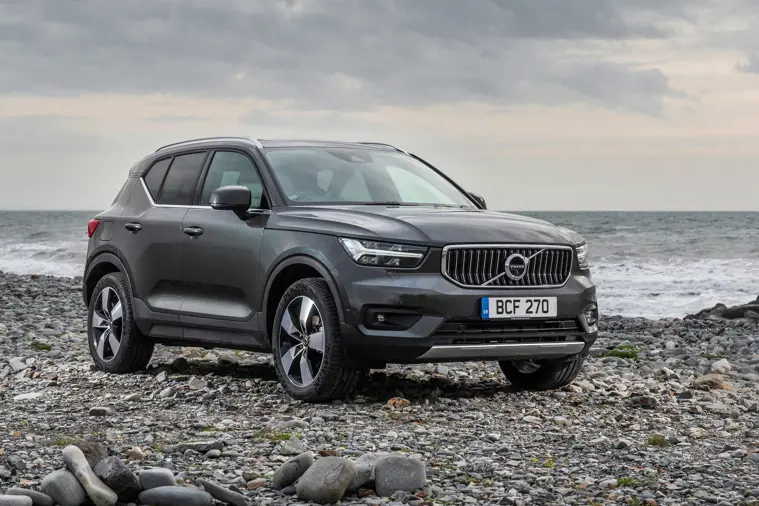
SUVs have topped the UK sales charts annually for over a decade and their popularity shows no signs whatsoever of abating.
With a high ride height, greater all-round visibility and better practicality than hatchbacks or saloon cars, SUVs are the ideal family transport, while they also have a much stronger image than van-like people carriers.
Drivers across the nation have fallen in love with SUVs, and there’s no match for the feeling of security that comes with sitting up high – they offer a greater feeling of perceived safety from behind the wheel.
Don’t be fooled by their size either. SUVs don’t have to be tank-like 4x4s that drive like a truck and are impossible to park. Most SUVs are designed to offer a car-like driving experience, while their footprint is often no bigger than that of a conventional hatchback.
They’re also usually family-friendly, with no bending or awkward leaning across to install car seats, lots of Isofix child-seat mounts, charging points for the kids’ (and adults’) gadgets, smartphone integration and lots of high-tech safety features and driver aids.
With popularity comes a lot of choice – from pocket-sized options with a small footprint to large, luxurious models that are dripping with prestige and premium equipment, there are SUVs to suit all sizes and budgets. Here are 10 of the best SUVs you can buy today. If you're after something a bit smaller, check out our pick of the Best Small SUVs.
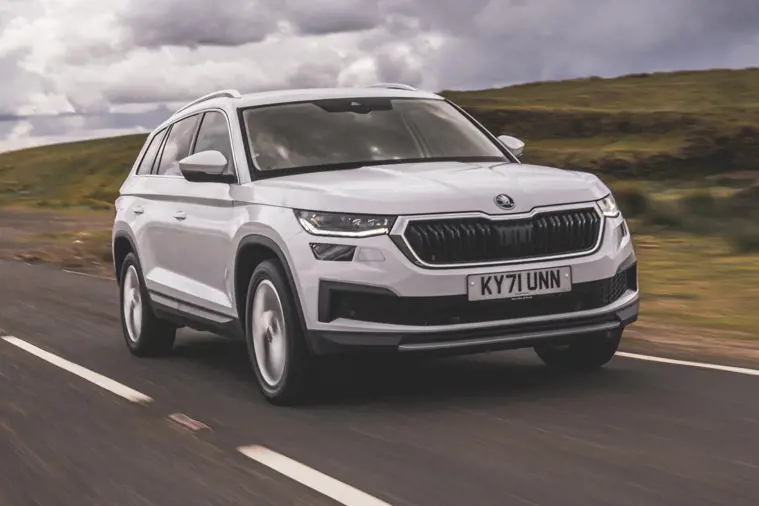
Best SUV for value, space and practicality
Our pick: Skoda Kodiaq 1.5 TSI SE L
Read our full Skoda Kodiaq review
With a great combination of value for money, style and quality, the Skoda Kodiaq is more than practical enough to render larger SUVs redundant if you want a car that offers loads of room, but is easy to drive around town and less expensive to buy than most.
The sliding middle seats mean you can get seven adults in the car with comfort, and in our view it offers the best mix of passenger space, luggage room, value and ease of driving among all of the medium-sized seven-seater SUVs on the market right now.
Up front, the cabin feels upmarket and can be specified with a large touchscreen multimedia system. It’s a crystal clear, easy-to-operate display that has some of the most intuitive menus of any car.

Best SUV for all-round excellence
Our pick: Volvo XC40 T3 R-Design automatic
Read our full Volvo XC40 review
There was a time when Volvo made boxy saloons and estate cars that were seen as functional, but dull – a far cry from the Volvo of today, which is renowned for producing some of the most stylish and progressive cars on the road.
Freshly styled, with gorgeous interiors, today’s Volvos are pretty special. The latest Volvo XC40 manages to capture that Scandinavian feelgood vibe, with a funky look all of its own and a beautifully crafted interior that’s brimming with practical touches.
It also happens to be seriously good to drive, especially if you go for one of the smooth and punchy petrol models – which make a pleasant change from noisier and less refined diesel motors. Give the Volvo XC40 a try and be prepared to change your view of the brand.
.jpg?width=759&format=webp)
Best SUV for combining style with practicality
Our pick: SEAT Tarraco 245PS 2.0 TSI 4Drive
Read our full SEAT Tarraco review
If you’re looking for a seven-seat SUV that has style and kerbside appeal of something a lot sportier, then the Volkswagen Group’s Spanish brand, SEAT, has the answer.
Under the skin, the SEAT Tarraco shares its underpinnings with the Skoda Kodiaq and also the Volkswagen Tiguan Allspace, but offers sharper styling and a more driver-focused cabin.
It’s SEAT’s first family-oriented seven-seater SUV and it’s a superb effort, with a choice of 2.0-litre diesel or TSI petrol engines and manual or DSG auto transmissions. The petrol is especially appealing, as it’s a lively and engaging car to drive, while in practicality terms the SEAT Tarraco is more spacious and functional than most of its rivals, with a large boot and generous rear seating.
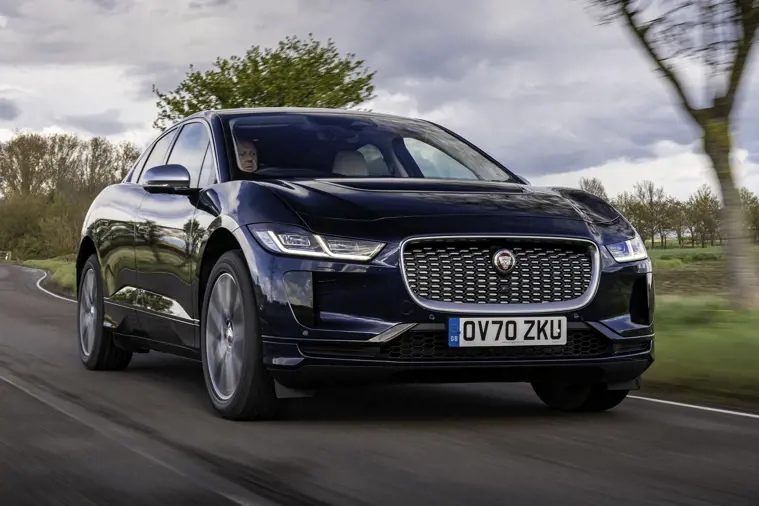
Best SUV for electric-powered luxury
Our pick: Jaguar I-Pace HSE
Read our full Jaguar I-Pace review
Jaguar got the jump on its German competitors when launching its first electric car, the Jaguar I-Pace SUV. And happily, in the rush to be first to market, it didn’t sacrifice the level of attention to detail required from a car costing more than £60,000 when new. Drivers will be pleased to hear that the starting price to get into a Jaguar I-Pace is far cheaper if you consider used models.
The Jaguar I-Pace is claimed to be capable of being driven up to 298 miles on a single charge – pretty competitive for a heavy electric car of this type. And the turn of speed it is able to generate is impressive – almost supercar quick.
The interior is a delight; refreshingly different to Jaguars of the past. It’s a modern, touchscreen-heavy environment with first-class levels of space, comfort and refinement. Yes, there are many more electric SUVs now available than when the Jaguar I-Pace was launched, but it remains the model of choice for those who can afford it.
.jpg?width=759&format=webp)
Best SUV for an engaging driving experience
Our pick: Mazda CX-5 2.2 Skyactiv-D Sport Nav
Read our full Mazda CX-5 review
The Mazda CX-5 is a rare thing – an SUV that’s capable both on the road and on the slippery stuff, making it both a reassuring and entertaining car to drive.
It’s also strikingly handsome thanks to Mazda’s trademark ‘Kodo’ design principles, while the interior is a minimalist work of art. But it’s practical, too, and there’s plenty of space for the average family of four to five people. It also comes with an impressive suite of safety tech, backed up by the reassurance of Mazda’s Skyactiv chassis technology, ensuring it remains sure-footed at all times.
The CX range is rapidly growing, too. The baby Mazda CX-30 is also a great SUV, and now there’s a bigger Mazda CX-60 plug-in hybrid in the model range, too. All of them are worth a look.
.jpg?width=759&format=webp)
Best SUV for low running costs
Our pick: MINI Countryman Cooper S E ALL4
Read our full MINI Countryman PHEV review
The plug-in hybrid MINI Countryman combines a petrol engine with an electric motor, offering the peace of mind of a petrol car – enabling you to top up the tank at thousands of filling stations across the country – with the efficiency of an electric car.
As a result, it attracts far less Benefit-in-Kind company car tax than a comparably priced petrol or diesel SUV, and is a far more frugal choice for urban motorists.
The MINI Countryman can be driven for nearly 30 miles on battery alone – provided you’ve fully charged the battery before setting off – and there’s the back-up of a petrol engine for longer journeys, although you can expect the S E ALL4 to be less efficient when this kicks in. Whichever mode it operates in, though, you are guaranteed a huge amount of fun from behind the wheel.
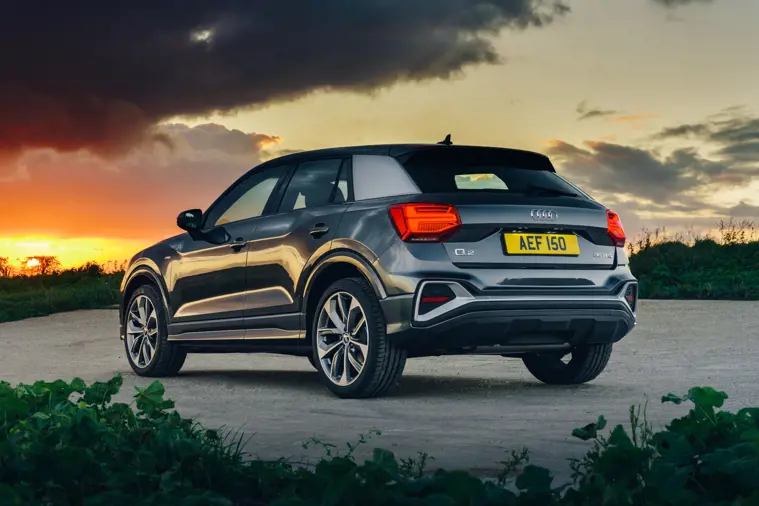
Best SUV for style at an affordable price
Our pick: Audi Q2 35 TFSI S line S tronic
Read our full Audi Q2 review
It’s easy to lose count of the number of SUVs offered by Audi, with the German company’s ‘Q’ models available in multiple sizes. But size isn’t everything, and with the Audi Q2 it’s a case of smallest is best – it’s a great car that won’t leave you feeling short-changed.
It successfully distills the essence of Audi into a compact package. There’s a head-turning body, a classy interior and a seriously impressive drive. In fact, by being smaller and lighter, this is easily the most fun-to-drive SUV in the Audi line-up. The pick of the engine range is the 1.5-litre petrol, as the 1.0-litre model can feel a little overwhelmed by the weight of the car at times.
There are larger, more spacious SUVs in abundance, but they won’t capture the feelgood factor of this car’s interior, or come with the posh badge on the grille. This is the best of the small SUV bunch.
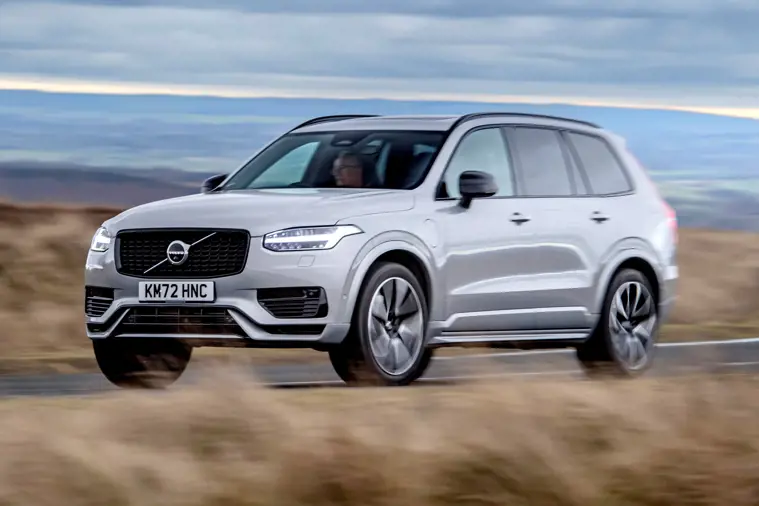
Best SUV for luxury and comfort
Our pick: Volvo XC90 D5 R-Design
Read our full Volvo XC90 review
The second entry from Volvo in this list is one of the best SUVs ever made, with all of the style, comfort, space and road presence of an Audi Q7 or its German counterpart, the BMW X5, but with a more sophisticated, less brash image.
The Volvo XC90 is undeniably big, but appears to offer a more subtle style, and once inside you’ll discover a haven of calm. There is a plug-in hybrid version of the Volvo XC90, but it costs over £12,000 more than the most affordable diesel model when new and £9,000 more than the cheapest petrol. So unless you want to reduce your company car tax bill, it’s best to save the money for fuel bills, servicing, insurance and a family holiday or two.
Better still, with plenty of used models available, there’s lots of choice and more affordable prices. Plus, they’re all seven-seaters.
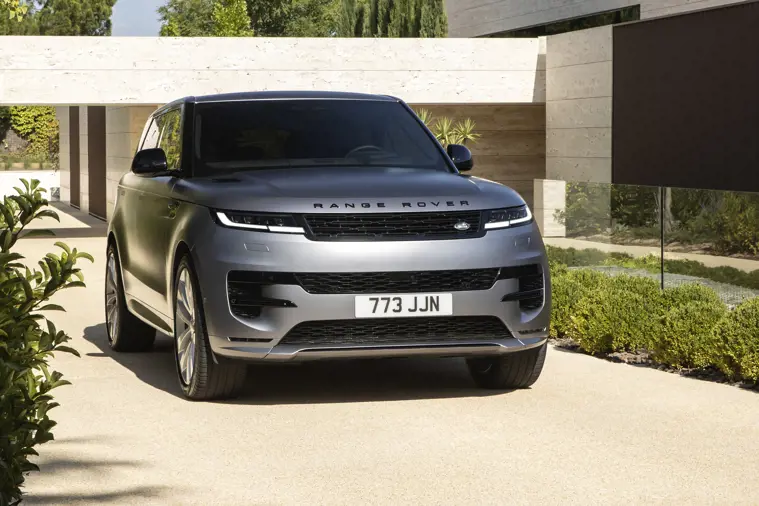
Best SUV for overall image
Our pick: Range Rover Sport P510e
Read our full Range Rover Sport review
One thing the Range Rover Sport isn’t is cheap, but the upmarket and strikingly stylish luxury SUV is one of the most appealing cars on sale today for a very good reason. Put simply, few cars are more desirable.
Relaunched as an all-new car for the 2023 model year, the latest Range Rover Sport is bigger than before but also much lighter and far more efficient, with versatile plug-in hybrid models in the form of the P440e and P510e, plus a full-on EV imminent. Or if you favour a more traditional approach, the 4.4-litre twin turbo V8 petrol models are glorious in their own way.
Whichever model you go for, you’re guaranteed opulence, supreme levels of tech and, if you need it, peerless off-road ability.
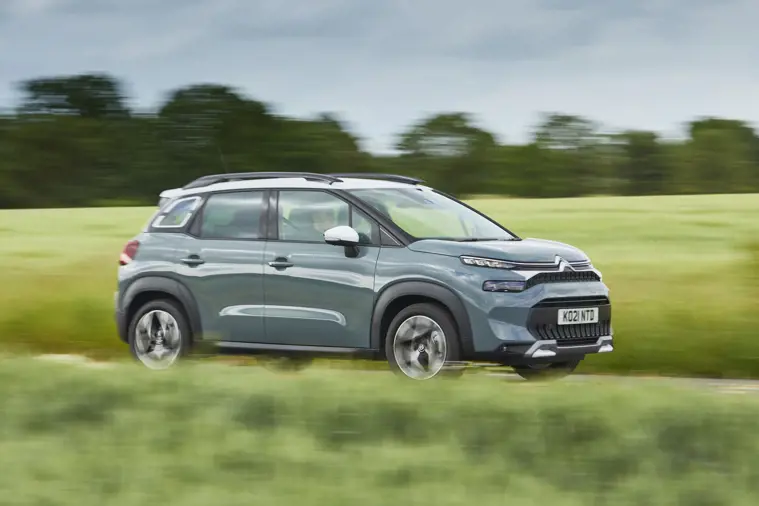
Best SUV for pint-sized value
Our pick: Citroen C3 Aircross PureTech 110 Shine Plus
Read our full Citroen C3 Aircross review
Proving that not every SUV needs to be big and chunky, the small hatchback-sized Citroen C3 Aircross is as purposeful and funky as bigger cars without taking up more than its fair share of space.
It might be small, but the little Citroen is capable, even though it doesn’t have four-wheel drive. Instead, it offers a clever ‘grip control’ system that enables it to maximise traction even on snow or mud.
The engines are frugal, the ride is comfortable and the Citroen C3 Aircross has a plucky character that’s impossible not to like. But it’s practical, too, with a good amount of cabin space, a sliding rear seat and a decently sized 410-litre boot. Some of the interior fittings feel a bit downmarket, but this is an affordable car that isn’t at all pretentious and great value – especially if you go for a second-hand model.
